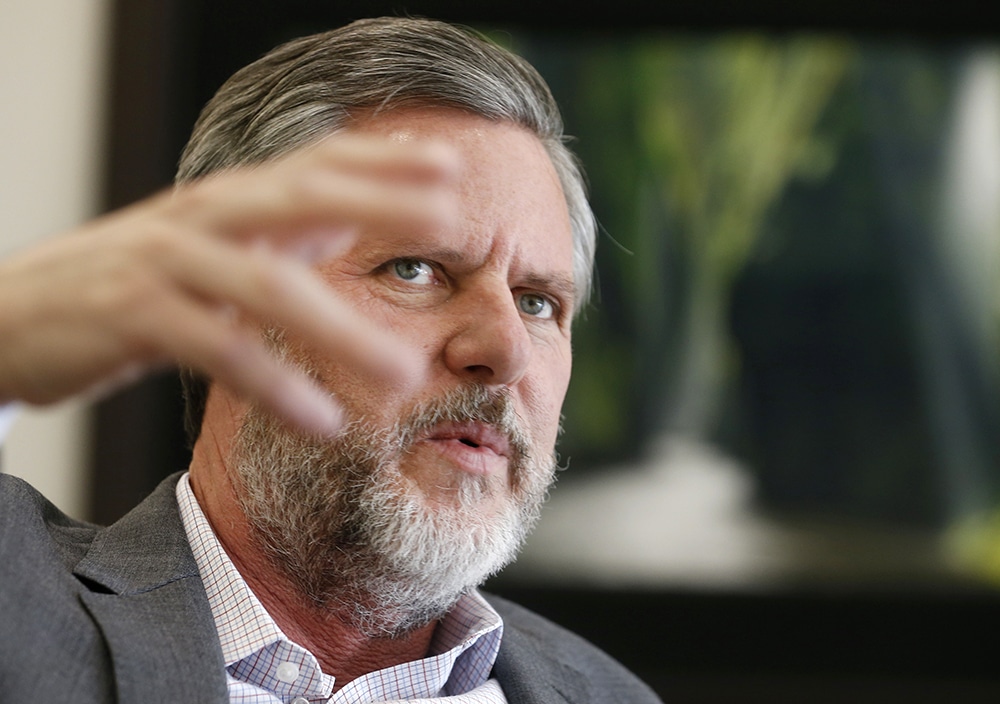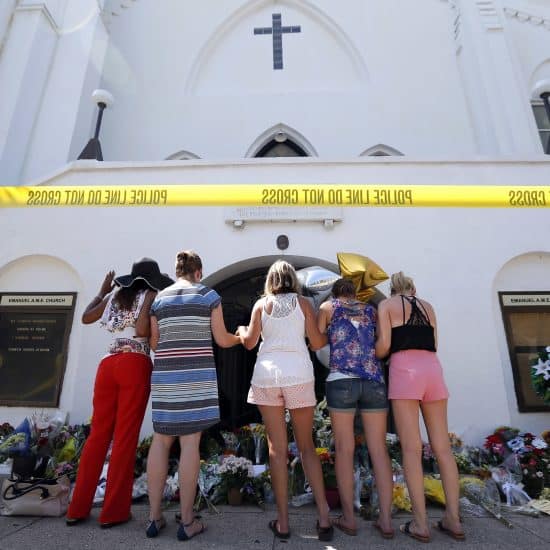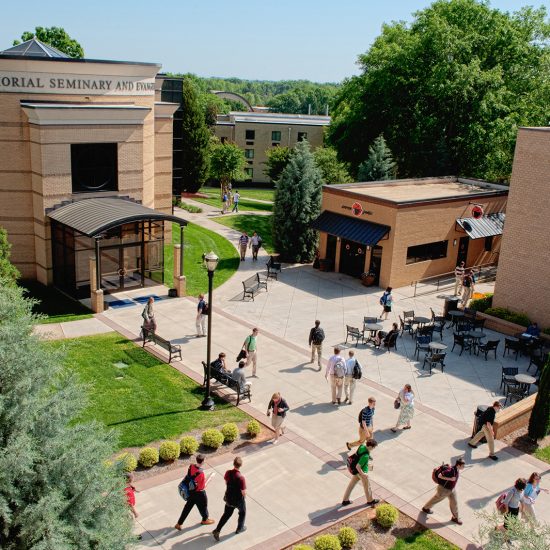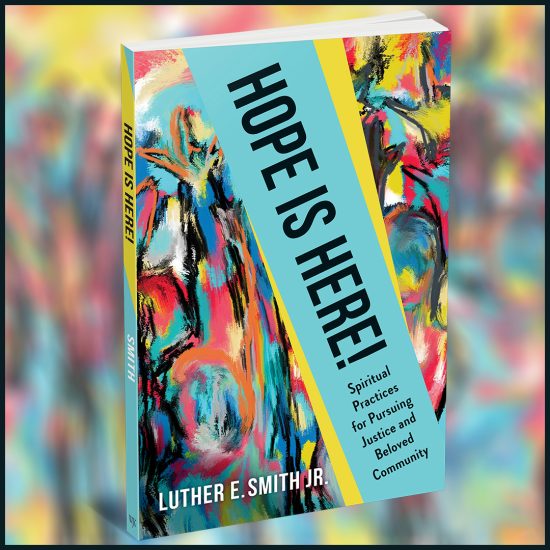
It’s tempting to watch Jerry Falwell’s fall and, well, cheer or snicker. After all, he’s done much to hurt the witness of Christianity with his history of hateful rhetoric and partisanship politics — not to mention the sordid details of the scandal that did him in. But this is a tragic moment.
Once again, an unbelieving world sees a prominent Christian leader acting unbelievably bad. His disgracefulness perverts the Gospel of grace that people hear from churches today.

Brian Kaylor
While we shouldn’t gloat in his fall, we should see it as a natural consequence of reaping what he sowed. But frankly, it’s quite concerning that it took this sex scandal to drive Falwell out of Liberty’s presidency. The leaders of that school should’ve forced him out much sooner to protect the reputation of their institution and the credibility of Christians more broadly.
After all, he declared in chapel that he wished more people had “concealed carry permits” so they “could end those Muslims,” he endorsed for president a thrice-married candidate who takes the Lord’s name in vain and promotes racism, and he tweeted out a racist image (an action that led many Black employees and student athletes to leave the school earlier this year).
But we don’t care as much about the sin of racism as we do sexual sins.

Liberty University president Jerry Falwell Jr., gestures during an interview in his offices at the school in Lynchburg, Virginia, on Nov. 16, 2016. (Steve Helber/Associated Press)
After all, the younger Falwell merely followed in his father’s footsteps in many ways — leading Liberty University, allowing partisanship to trump principles, speaking hatefully, and supporting White supremacist politicians. Many Christians kept defending and praising the elder Falwell despite his record of preaching racism.
And Liberty isn’t alone in this error. Southwestern Baptist Theological Seminary literally memorialized the elder Falwell — and others like W.A. Criswell who also preached the gospel of segregation — in stained glass despite his racism — and only removed those and other windows after the man who installed them got caught up in a sex scandal. And Southern Baptist Theological Seminary refuses to remove the names of its enslaver founders, seeing the racist theology of its founders as too minor to be considered heresy.
We won’t see the progress we need in our country and especially our churches until we start taking the sin of racism at least as seriously as other sins like those that cost Falwell his job. But so far, we don’t.
New research by the Public Religion Research Institute found that most Americans now recognize racism in American society better than five years ago, White evangelicals, however, aren’t moved. Consider these four findings:
- While only 42% of Americans now think police killings of unarmed Black men are just isolated incidents (compared to 53% in 2015), the number of White evangelicals believing that remains unchanged at 72%.
- While just 38% of Americans think discrimination against Whites is just as bad as against Blacks, 56% of evangelicals believe that.
- While only 49% of Americans now disagree that slavery created conditions that make it difficult for Black Americans to work their way out of poverty (compared to 58% five years ago), White evangelicals are actually moving in the wrong direction as 72% now disagree (compared to 69% in 2015).
- While just 48% of Americans now believe the Confederate flag is more about Southern pride than racism (compared to 51% in 2015), White evangelicals are again moving in the wrong direction as 76% believe that (compared to 70% in 2015).
When it comes to racism, White evangelicals aren’t being salt and light to the world, but instead lagging behind. And as long as racism sits in our moral blindspot, we’ll continue to offer nothing more than desalination and darkness to a world that needs justice and hope.
As Liberty seeks a new leader and someone else at that institution or elsewhere will rise to fill the public space Falwell used to hold, I have the same hope as I did 13 years ago when his father died.
“My hope and prayer now,” I wrote back then, “is that the next generation that arises to take his place will be more careful and less polarizing with their words. In short, I hope the next Jerry Falwell sounds a lot less like Jerry Falwell.”
But that won’t happen until we finally see racism as a serious sin worthy of rebuke and repentance.






